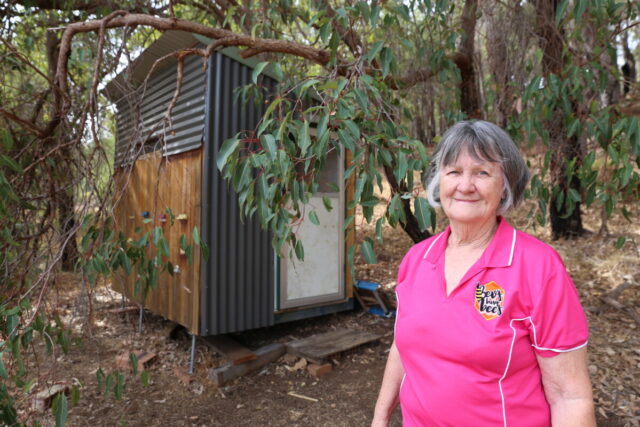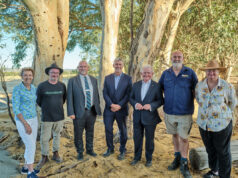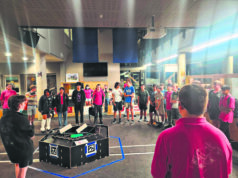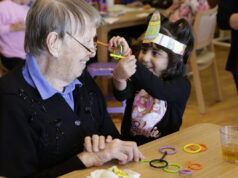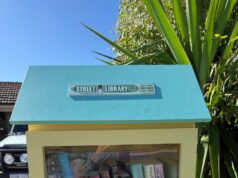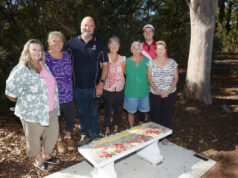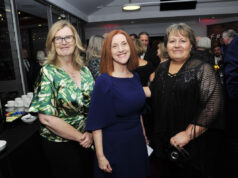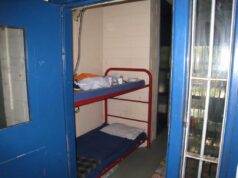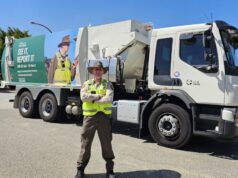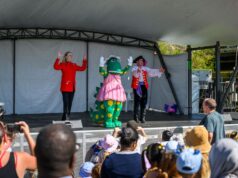Brookdale beekeeper Bev Lee is hoping to improve the health of locals by bringing a centuries-old European secret to WA.
Bev has been working with bees for around 15 years. A few years ago, she began researching about accessible hive styles so that she could continue with her pursuit as she ages.
“Bees are my passion. But I’m 76 now. I had to find a hive that I could manage in my old age – I want to keep hives until I’m 96,” she said.
That’s when she discovered horizontal hives, in particular Slovenian or AZ hives.
AZ hives offer a different type of beekeeping that eliminates most of the weight associated with removing the supers from hives. Instead, the frames are removed one by one through an opening at the rear of the hive. This makes them accessible for children, elderly people, even those in wheelchairs.
AZ hives are usually installed in a bee house, which is the traditional form of beekeeping in Slovenia – where beekeeping is a way of life.
One out of every 200 people in this small central European nation is a beekeeper.
Inside, their apiaries are a mix of workspace and living room – beekeepers eat, drink, even take naps surrounded by the sweet wafts of honey, and the thrum of their bees hard at work.
Bev inadvertently stumbled into this world, and in doing so, discovered the remarkable and wide-ranging potential health benefits of this style of beekeeping.
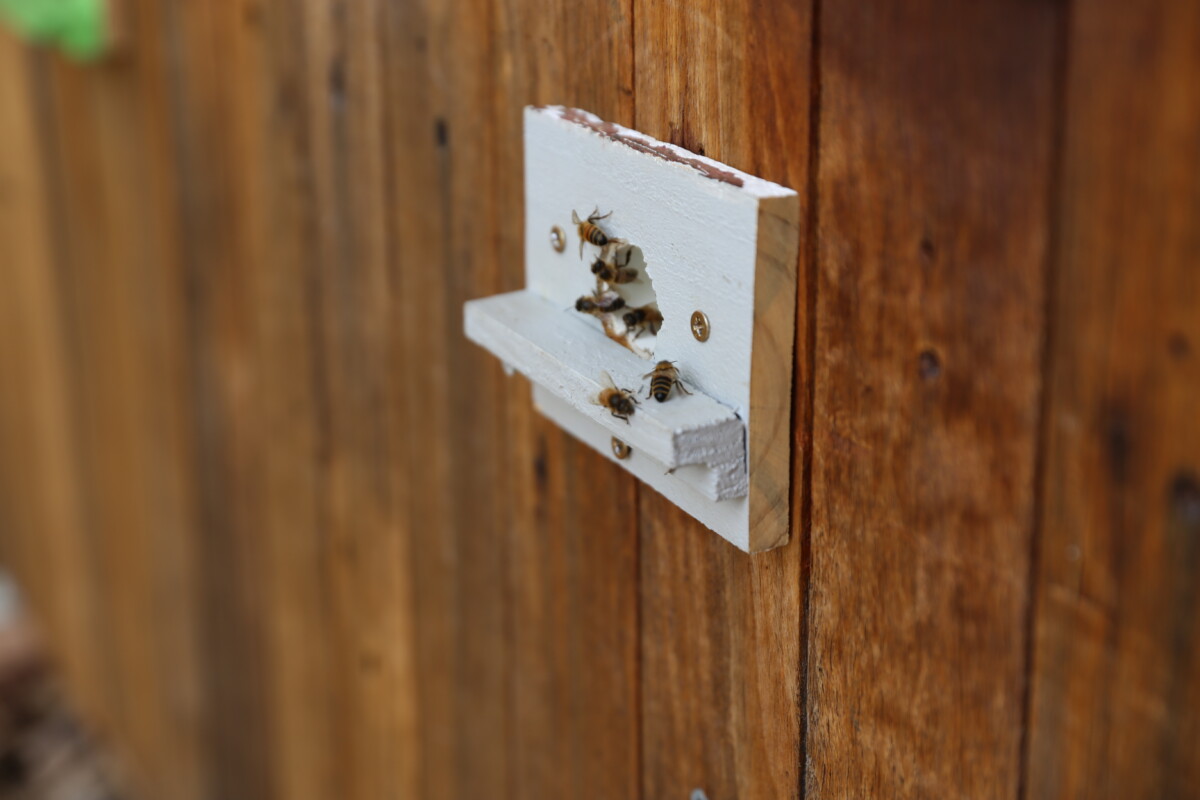
While bee products have been revered and used for centuries across a range of cultures for their medicinal properties, more recently other types of ‘apitherapy’ have been gaining popularity in Slovenia.
One practice that is gaining traction has been taken straight from the Slovenian beekeeping tradition – an immersion session inside a bee house.
This practice boosts mental health, the beekeepers claim.
And today, bee therapy acts as a salve to the day-to-day stressors for many in Slovenia, including people in high-pressure jobs like firefighting.
Some schools are reported to be sending kids struggling with focus in the classroom to ‘timeout’ sessions in the bee hive – with remarkable anecdotal success.
The calming power of bees is being harnessed in Australia too.
At the beginning of the pandemic, Australia’s first community apiary for people with mental health issues, including returned servicemen and women, was opened in Ballarat.
Since 2017, GPs across Australia have rated mental health as the most common presentation they see, so there is clearly a need to explore different complementary therapeutic options for alleviating the symptoms of mental illness, like bee house therapy.
“It’s important, and we’re not making full use of the resources we have,” Bev said.
The rich aroma of honey whirls around you when you step inside Bev’s custom-made wooden bee house on Canns Rd in Bedfordale – a passion project three years in the making.
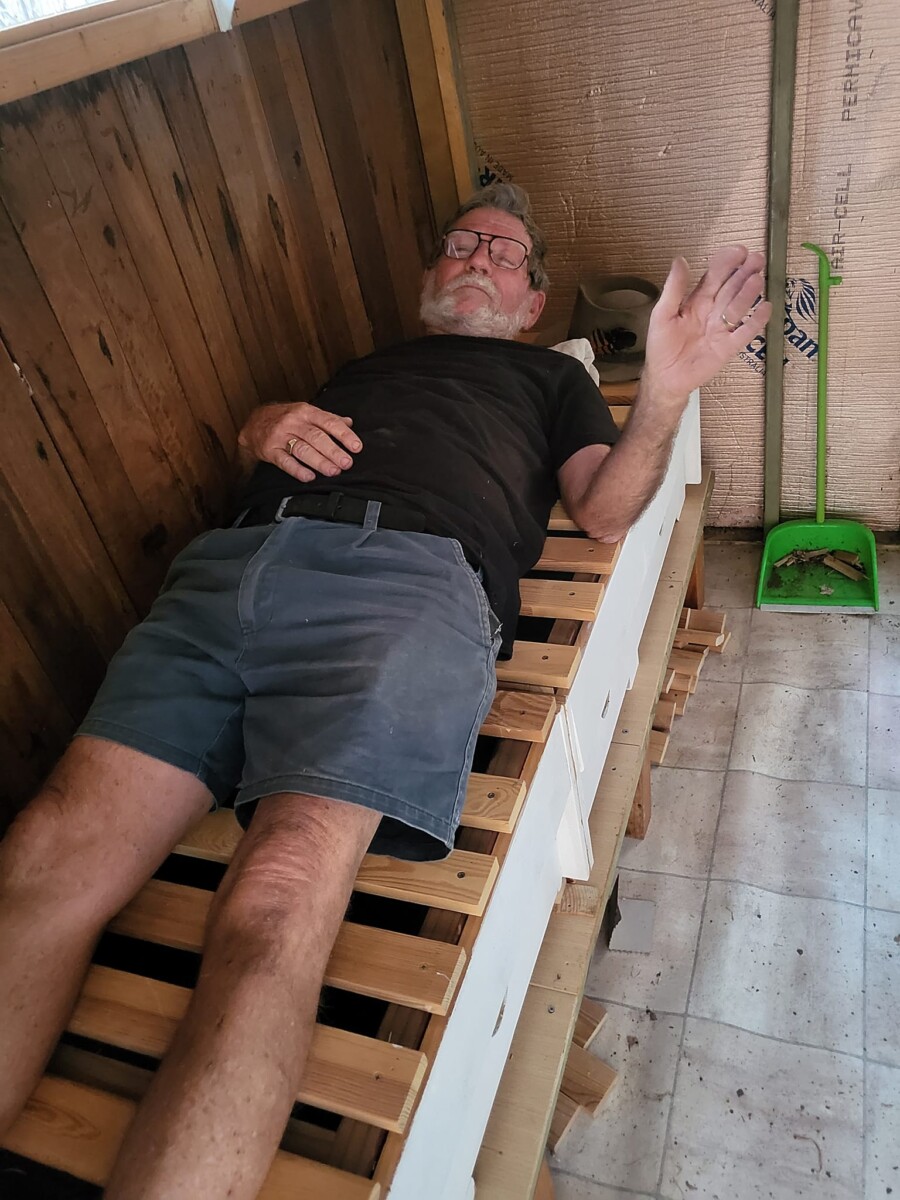
Lie down on the wooden bed, and you immediately hear and feel the vibration of hundreds of industrious bees working underneath you. The rhythmic drone of their effort is hypnotising, and instantly calming.
But it might not just be a tool for relaxation; there are multiple studies that show propolis – the complex resinous mixture collected by bees – has good antibacterial, antifungal and anti-inflammatory effects.
Asthma is considered a major public health problem that affects approximately 10 percent of the world’s population, and pharmacists remain hopeful about producing analogues to steroid inhalers that avoid the side effects and maintain the therapeutic efficacy.
A comparative placebo-controlled clinical study by Khayyal et al in 2003 found administering propolis reduced asthma symptoms such as cough, dyspnea, wheezing, and nocturnal attacks.
“At the end of the trial, a reduced frequency of asthma attacks and emergency department visits was recorded among the subjects receiving propolis treatment. Overall, this study suggests the potential therapeutic effects of propolis for asthma,” the study’s authors concluded.
A phase-two randomised, double-blind and controlled clinical trial in 2021 also found that “propolis improved the clinical and physiological findings of moderate persistent asthma”.
And initial studies are underway into the health effects of the aerosolised intake of propolis, honey and pollen whilst inside these unique bee houses.
There are also intriguing findings that local bee products can help alleviate the symptoms of hay fever through immunotherapy – building up the body’s immune defences through regular exposure to local pollens.
“My husband used to be hospitalised regularly for hay fever – since eating my honey he hasn’t had a single attack,” Bev said.
However, empirical evidence is still thin and Australian health authorities advise those with existing conditions not to abandon their prescribed medications, and to consult their GPs before trying complementary treatments, like propolis.
Bev believes Australia shouldn’t ignore the potential of apitherapy bee houses while waiting for science to catch up.
“Other beekeepers think this is all a bit airy fairy. But this is real – it’s so common in Europe,” Bev said.
“It is effective and people need to know more about it.”
She is ready to welcome those willing to give it a go.
Six locals with varying ailments have already tried her bee therapy house, with glowing recommendations.
“They all said the vibration of the bees was amazing and they couldn’t get over the smell of the honey,” she said.
To find out more or to book an hour-long session, contact Bev at bev.davelee@gmail.com


